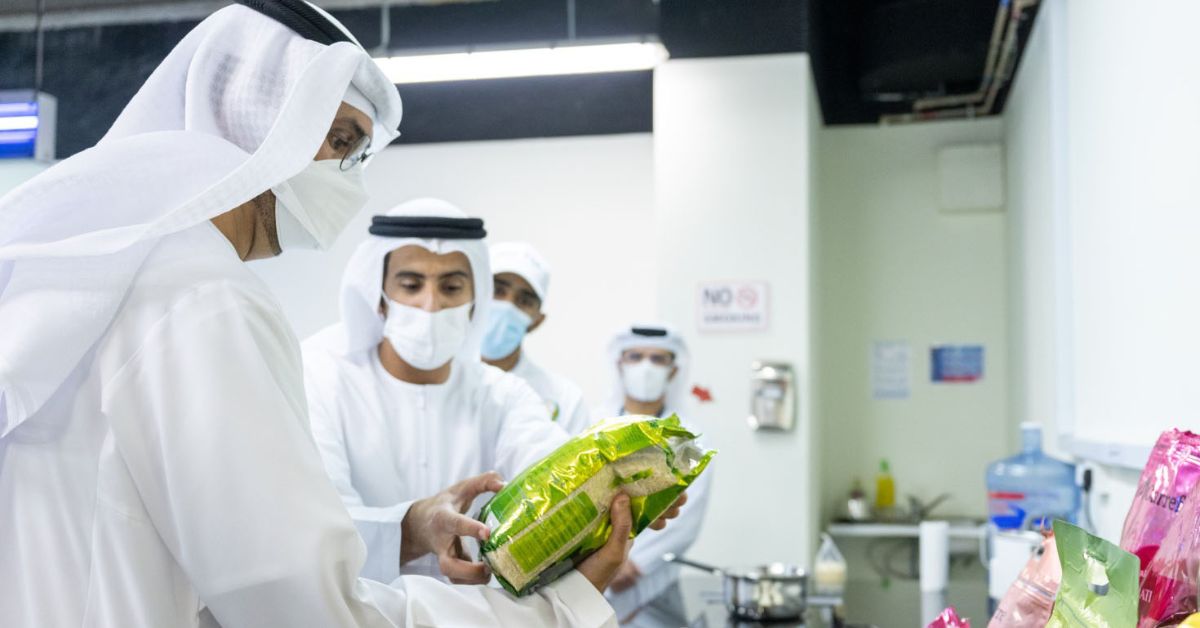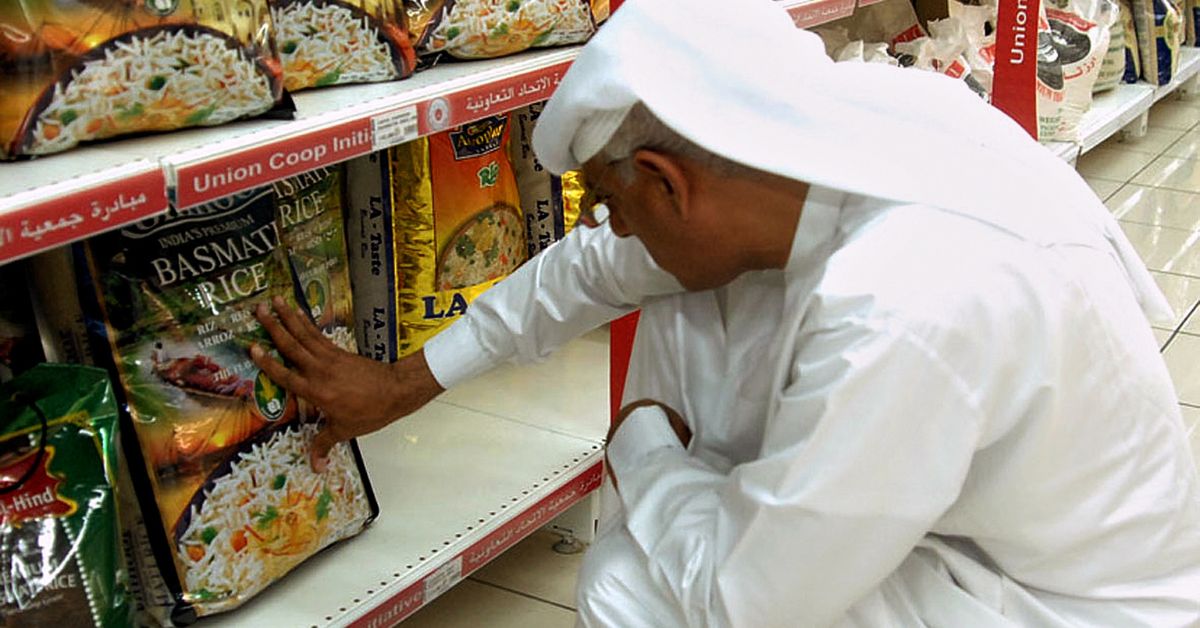DUBAI, UAE — The Russian-Ukrainian war exacerbated the global food crisis, raising concerns about a shortage of primary materials. This prompted the GCC countries to implement immediate and long-term measures to ensure their food security.
Rice is now among the commodities facing potential supply shortages and rising prices due to consecutive export bans. India, the world’s largest rice exporter, initiated the ban, followed by the UAE—a major transit trade hub in the Arab region—and then Russia. More countries are expected to join this list soon.
In this context, there’s a growing call in Saudi Arabia to bolster agricultural investment by cultivating products that Saudis consume heavily, especially rice, a staple food.
A report from the Saudi newspaper Al-Eqtisadiah on June 3, 2022, highlighted that rice consumption in Saudi Arabia, including by residents, has surpassed wheat consumption. In 2021, consumption exceeded 1.2 million tons, with the majority being imported varieties, primarily from India.
Muhammad Jaber Al-Sahli, a development expert, noted that while there is a small local production of the renowned Hasawi rice in Al-Ahsa, this variety, known locally as “Al-Mufleq”, cannot meet the consumption demands compared to other imported varieties like “Basmati”, “Anmbr”, “Peshauri”, and “American-Egyptian” rice.

Al-Sahli said that while imported rice costs around $2.67 per kilogram, Hasawi rice is priced at $12 per kilogram. To cater to its demand, there’s a need for officials and the private sector to invest in its production and expansion.
When discussing the local food security of rice and other varieties prevalent in Saudi cuisine, all of which are 100 percent imported, serious consideration is required to explore the possibility of cultivating rice in the Kingdom.
Experts suggest that advancements in land reclamation, irrigation techniques, and the development of rice varieties that can tolerate soil salinity and require less water have reached a point where some rice types can even be cultivated using seawater. This has been demonstrated in countries like China, Vietnam, and Indonesia.
Although rice seedlings must be immersed in water for the first two months of a process that takes six to eight months, modern technologies, whether soil treatment or hybridization of cultivated varieties, are possible and require serious initiative.
Al-Sahli emphasized the urgency for countries to become self-reliant for their basic needs, given the risks associated with heavy reliance on imports. This underscores the importance of exploring the feasibility of local cultivation of essential grains and crops, including rice.
According to the Saudi newspaper Al-Watan, there exist over 400 rice farms in Al-Ahsa Oasis and its governorate. Al-Ahsa’s land is uniquely suited for cultivating Al-Hasawi rice due to its fertile soil, moderate acidity, and high temperatures. However, several challenges hinder its cultivation, including environmental factors like temperature fluctuations, drought, desertification, pest infestations, high organic fertilizer costs, and a lack of skilled labor.
What is the situation in other Gulf countries? Most GCC countries declared that they are not in crisis due to the global rice shortage because they have an abundance of this grain and do not consume a large amount of the type that India has banned from exporting.
On July 27, the UAE’s Ministry of Economy announced a temporary four-month halt on rice exports and re-exports, effective from July 28. The decision included a ban on exporting and re-exporting rice from India that is imported into the country, including free zones, after July 20. Companies wishing to export or re-export these types of rice must apply to the Ministry of Economy for an export permit, as long as the request is supported by all documents verifying the shipment data.
The Emirates Society for Consumer Protection assured the public of sufficient rice stock in a statement on August 1 and advised against panic buying.
The Omani Ministry of Agriculture, Fisheries, and Water Resources, in a statement on August 1, reassured the public about the country’s secure rice stock and emphasized regular monitoring and collaboration with government agencies.
Kuwait also reassured its citizens about the rice situation. The Kuwaiti Minister of Trade and Industry, Muhammad Othman Al-Aiban, stated that the country’s rice stock is reassuring and will last an entire year. In a statement issued on July 30, Al-Aiban mentioned that the repercussions of India’s export ban decision would not affect the additional rice shipments that the Kuwait Catering Company has contracted to supply on scheduled dates. He emphasized the government’s commitment to food security and its efforts to enhance the necessary infrastructure to ensure long-term food security.
Similarly, Khalid Ali Al-Amin, head of the Bahrain Chamber of Commerce and Industry’s Food Sector Committee, stated on July 30 that Bahrain and the Gulf, in general, are safe from the effects of the rice export ban. According to Al-Amin, only about one-third of the population in the Kingdom, primarily those with limited incomes, purchase this specific type of white rice. He denied that rice prices would rise because the ban is only temporary, pointing out that Bahrain has an ample supply of goods and that the decision does not affect prices.

